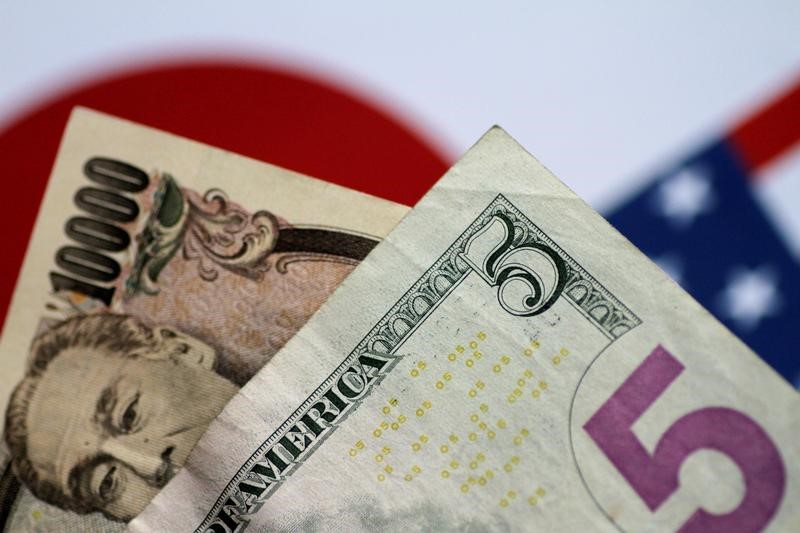Investing.com - The yen and the Swiss franc pushed higher against the U.S. dollar on Thursday as weak Chinese economic data and doubts over whether the U.S. and China will be able to reach a preliminary trade deal underpinned demand for safe haven assets.
Against the yen, the dollar was down 0.2% at 108.58 by 04:16 AM ET (09:16 GMT). The greenback was down 0.2% against the Swiss franc at 0.9873.
U.S.-China trade negotiations have 'hit a snag' over farm purchases, with Beijing not wanting a deal that looks one-sided in favor of the U.S., the Wall Street Journal reported on Wednesday.
Adding to pressure on risk appetite, Chinese retail sales, industrial output and investment data were weaker than expected, sending the Australian dollar, already knocked by soft local employment data, to a one-month low of 0.6793.
The unexpectedly downbeat China data highlighted continued pressure on the world's second-largest economy and subsequent risks to global growth.
The yen showed little reaction after data overnight showing that Japan’s economy slowed sharply in the third quarter, growing just 0.2% as exports fell amid ongoing trade tensions.
The euro was little changed at 1.004 after hitting a one month low of 1.0995 in U.S. trade.
In the Eurozone, data showed that Germany escaped a recession in the third quarter, as the economy grew 0.1%, but a global slowdown, Brexit uncertainty, and fallout from the U.S.-China trade war continued to cloud the outlook.
The U.S. dollar index edged down to 98.18 from a one month high of 98.30 reached in the previous session.
Federal Reserve Chair Jerome Powell on Wednesday told Congress that the negative interest rates sought by Trump aren't appropriate for a U.S. economy with ongoing growth, a strong labor market and steady inflation.
Meanwhile, British pound was little moved at 1.2852, stuck in a tight range this week, in a limbo ahead of a Dec. 12 election.
--Reuters contributed to this report
